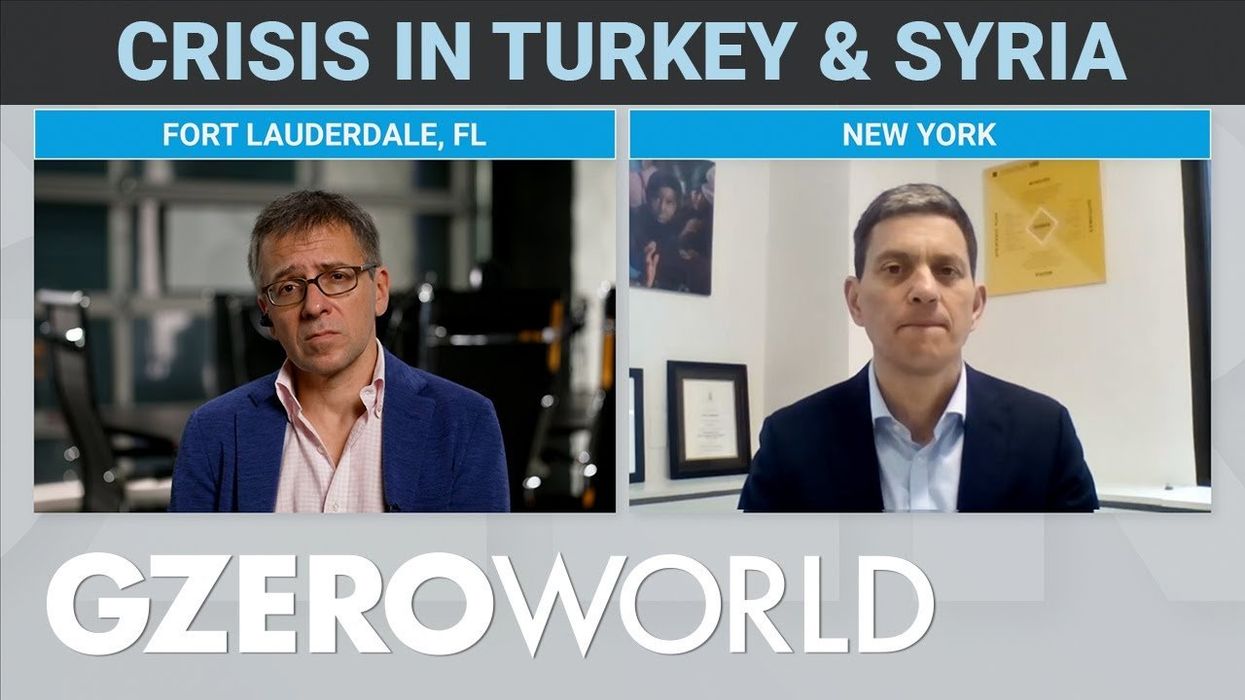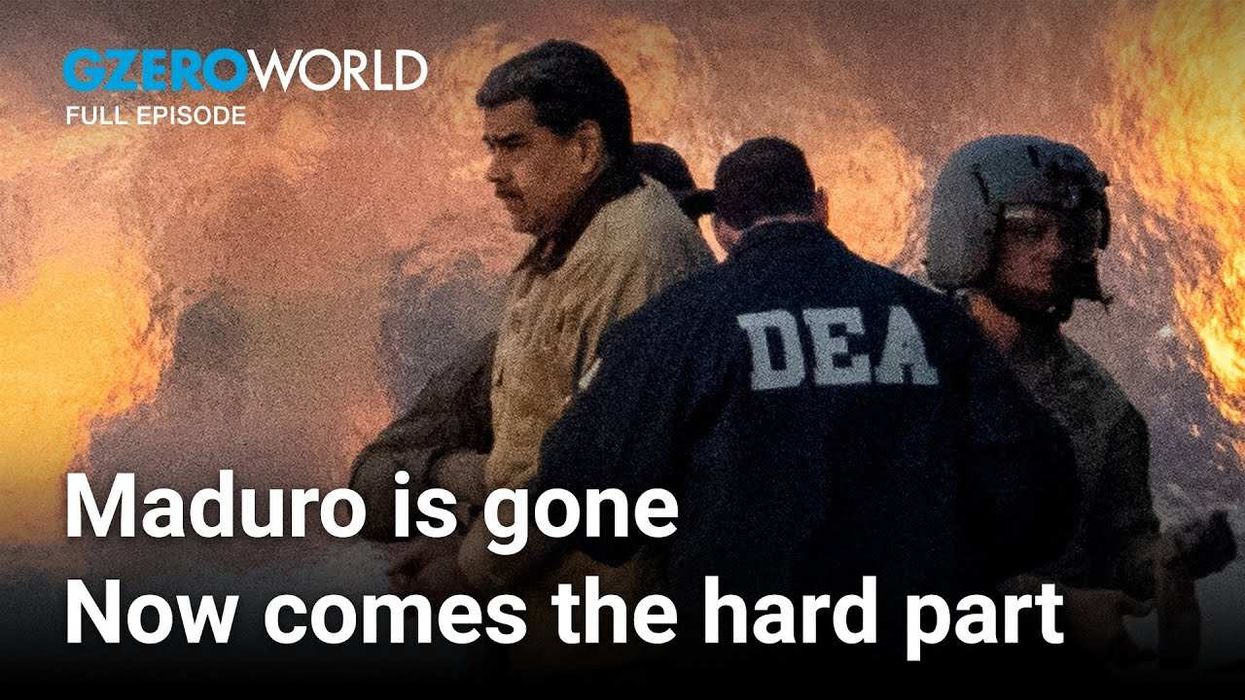VIDEOSGZERO World with Ian BremmerQuick TakePUPPET REGIMEIan ExplainsGZERO ReportsAsk IanGlobal Stage
Site Navigation
Search
Human content,
AI powered search.
Latest Stories
Sign up for GZERO Daily.
Get our latest updates and insights delivered to your inbox.
Global Stage: Live from Munich
WATCH RECORDING
The recent earthquakes in Turkey and Syria have highlighted the challenges of providing aid in a region plagued by conflict and political instability. In conversation with Ian Bremmer on GZERO World, the International Rescue Committee's President and CEO, David Miliband, explains that aid delivery remains a challenge, particularly in the northwest of Syria controlled by armed opposition groups.
The earthquake has compounded the ongoing crises in Syria, as lack of adequate medical care, cholera outbreaks, freezing temperatures, and continued border skirmishes pose major risks to the population. Miliband notes, “If you live there, it's very hard for people to keep any hope at all.”
The critical task now is to scale up the delivery of aid to those still desperately in need in Turkey and Syria.
The disaster is quickly becoming a political issue in Turkey, as people accuse the government of lax building standards and corrupt permit systems. Although Miliband is no expert in structural engineering, he brings up Turkey's recovery after a devasting earthquake in 1999, which was plagued with accusations of corruption and led to the outster of the prime minister. Miliband predicts that the earthquake response will influence Turkey's upcoming election, adding to the political heat.
The migrant crisis is also a complex and pressing issue, with Miliband emphasizing the need to “balance fairness with humanity and fulfill legal as well as moral obligations for people who have been driven from their homes.”
Keep reading...Show less
More from GZERO World with Ian Bremmer
President Trump against the world
February 16, 2026
How Singapore navigates a fragmented world
February 02, 2026
Can Europe stay united?
January 23, 2026
One year into Trump 2.0: How the world has changed
January 18, 2026
Maduro is gone. What happens now?
January 12, 2026
About the Show
Every week on GZERO World with Ian Bremmer, Ian explains the key global stories of the moment, sits down for an in-depth conversation with the newsmakers and thought leaders shaping our world.
Watch GZERO World on US public television and on GZERO's YouTube channel. GZERO WORLD with Ian Bremmer is a local public television program presented by THIRTEEN PBS.
GZERO Series
GZERO Daily: our free newsletter about global politics
Keep up with what’s going on around the world - and why it matters.
















